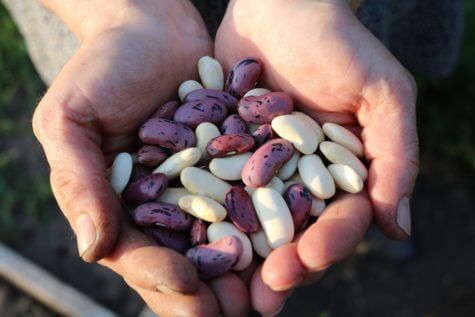
LOMA LINDA, Calif. — If you love the environment, making the dietary switch from beef to beans could play a tremendous role in helping to reduce greenhouse gas emissions, a new study finds.
Researchers were curious about the hypothetical environmental impact of legumes — which release one-fortieth of the greenhouse gases of beef — serving as a replacement to meat at the dinner table.
“Given the novelty, we would expect that the study will be useful in demonstrating just how much of an impact changes in food production can make and increase the utility of such options in climate-change policy,” says lead researcher, Dr. Helen Harwatt, a research fellow at Loma Linda University, in a school press release.

Beef not only produces the most greenhouse gases of any food, but cattle, from which it’s derived, demand a substantial amount of agricultural land in the U.S., the researchers found.
Ultimately, just eliminating beef from the American diet would allow the nation to fulfill 50 to 75 percent of its target greenhouse gas reductions by 2020, which is eye-opening, considering how most debate on reducing emissions revolves around curtailing the use of fossil fuels.
“The nation could achieve more than half of its GHG reduction goals without imposing any new standards on automobiles or manufacturing,” says Dr. Joan Sabate, one of the study’s researchers.
While it is not expected that everyone will just abandon their meat and become a vegan, the researchers point out how many have begun incorporating plant-based meat replacements into their diet.
For example, the researchers cite how over a third of American consumers currently purchase some form of plant-based meat product.
Many plant-based imitations do a good job at replicating the taste and texture of real meat, leading the researchers to conclude that we no longer need to consume meat derived from animal sources.
“The scale of the reductions in greenhouse gas emissions needed doesn’t allow us the luxury of ‘business as usual’ eating patterns,” warns Harwatt.
The study’s findings were published in the journal Climatic Change.








Was excessive flatulence taken into account in these idiotic studies?
Why don’t we just eliminate termites. Termites produce more methane than all the livestock in the world including all poultry.
“Saving the Planet” is the stupidest thing I’ve ever heard.
People on earth are like ants on a cruise ship. We have no more control over the climate than we do the steering.
I have news for you. NOTHING YOU DO IS GOING TO “SAVE THE PLANET”! The planet doesn’t need saving. You do though. Through the blood of Christ.
I agree to a great extent though I’m not religious. Attacks on religions like Christianity are intended to leave people in panic about things they can’t control.